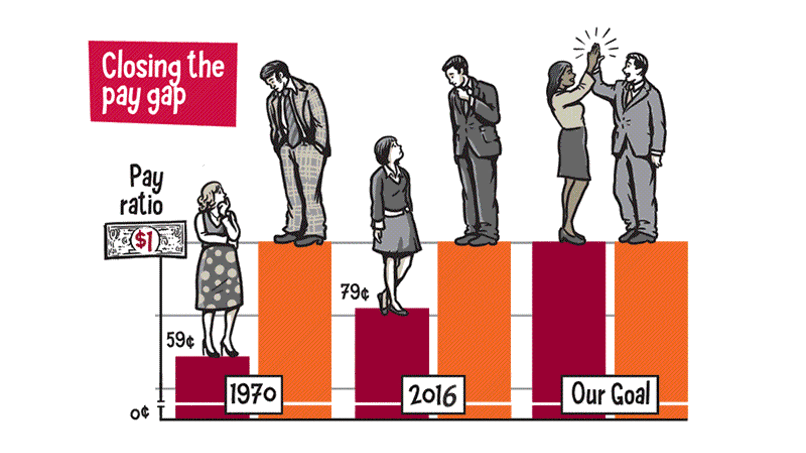Within the last twenty years, laws have been enacted to encourage wage transparency and decrease the wage “gaps” or differences, between genders and between whites and racial minorities. These new laws protect employees’ right to discuss and compare wages and prohibit retaliation against employees who engage in those discussions. For employers, this post is a reminder that the legal landscape has dramatically changed, in this area. It is no longer permissible to discipline or threaten to discipline or terminate an employee for disclosing, comparing or discussing wages. For employees, this post is intended to educate regarding rights in this area.
 Amendments to the Colorado Anti-Discrimination Act. Since 2008, it has been an unfair employment practice to discharge discipline, discriminate against, coerce or in any way intimidate threaten or interfere with an employee or other person because the employee inquired about disclosed compared or otherwise discussed the employees’ wages. It is also an unfair labor practice to require an employee to disclose their past salary history as a condition of employment. C.R.S. § 24-34-402(1)(i). A person who participates in, or “aids or abets” an unfair employment practice may also be liable under this act. In a more recent decision, Bonidy v. Vail Valley Center for Aesthetic Dentistry, P.C. (Colo. App. 2012), the Colorado Court of Appeals held that Colorado’s Minimum Wage Order, which is a document issued by Colorado’s Department of Labor and Employment on an approximately annual basis, articulates an important public policy upon which such a claim may be based.
Amendments to the Colorado Anti-Discrimination Act. Since 2008, it has been an unfair employment practice to discharge discipline, discriminate against, coerce or in any way intimidate threaten or interfere with an employee or other person because the employee inquired about disclosed compared or otherwise discussed the employees’ wages. It is also an unfair labor practice to require an employee to disclose their past salary history as a condition of employment. C.R.S. § 24-34-402(1)(i). A person who participates in, or “aids or abets” an unfair employment practice may also be liable under this act. In a more recent decision, Bonidy v. Vail Valley Center for Aesthetic Dentistry, P.C. (Colo. App. 2012), the Colorado Court of Appeals held that Colorado’s Minimum Wage Order, which is a document issued by Colorado’s Department of Labor and Employment on an approximately annual basis, articulates an important public policy upon which such a claim may be based.
- Wrongful Discharge in Violation of Public Policy. An employer who discharges an employee because that employee asserted her right to receive compensation may be liable under the common law tort of wrongful discharge in violation of public policy. Hoyt v. Target Stores, 981 P.2d 188, 191 (Colo. App. 1998).
 Colorado’s Equal Pay for Equal Work Act. Effective January 1, 2021 (January 1, 2022 for smaller employers), the Colorado Equal Pay for Equal Work Act (“EPEWA”) forbids retaliation against employees who compare compensation and also prohibits employers from using salary history to determine pay. The EPEWA also requires wage transparency in job postings, i.e. requires an employer to provide the pay or pay range, in job postings and other employee recruiting documentation.
Colorado’s Equal Pay for Equal Work Act. Effective January 1, 2021 (January 1, 2022 for smaller employers), the Colorado Equal Pay for Equal Work Act (“EPEWA”) forbids retaliation against employees who compare compensation and also prohibits employers from using salary history to determine pay. The EPEWA also requires wage transparency in job postings, i.e. requires an employer to provide the pay or pay range, in job postings and other employee recruiting documentation.
- National Labor Relations Act. Under the National Labor Relations act, it is an unfair labor practice for an employer to interfere with activities and discussions amongst employees regarding wages, working conditions, hours of employment, and other terms and conditions of employment. The law expressly protects, “concerted activities” on these topics. Employee handbooks, offer letters, and separation agreements may not preclude employees from exercising these rights. Accordingly, provisions and employment documents that prohibit employees from disparaging the company or sharing company secrets should be modified to carve out employee rights of discussion in this area.
For more information, please contact PSB Law Firm at 303-442-5111 or visit our website, www.psblawfirm.com

